Animal Biotechnology

Fountain of youth? Stem cells show promise in slowing aging, rejuvenating brain — in mice
Stem cells in the brain could be the key to extending life and slowing ageing. These cells — which are ...

US national security advisors map plans to counter rogue gene drives
The JASONs, a group of elite scientists that advises the US government on national security, has weighed in on issues ranging from cyber security to renewing America’s nuclear arsenal ...
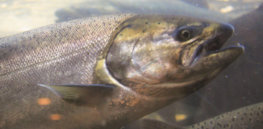
Activists claim ‘faulty’ environmental assessment led to approval of Canadian GMO salmon facility
It was a faulty environmental assessment process that allowed a company in eastern [Prince Edward Island (P.E.I), Canada] to build ...

Winning the fertility race: Does one ‘super gene’ control sperm size and shape?
The shape, size, and swimming speed of sperm all depend on one supergene, according to new research with zebra finches ...

Opinion: Why the National Organic Program’s funding should be eliminated, not just cut
[Editor's note: Henry Miller is a physician and molecular biologist, and a Fellow in Scientific Philosophy and Public Policy at Stanford University’s Hoover Institution. He ...
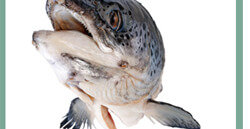
Alaskan Sen Murkowski introduces bill to label GMO ‘frankenfish’ salmon that could ‘wreak havoc’
Sen. Lisa Murkowski, R-Alaska, has introduced new legislation mandating that genetically engineered salmon be so labeled. The Genetically Engineered Salmon ...
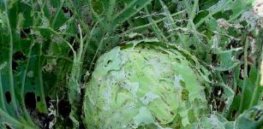
New York organic farm group opposes release of genetically engineered moths to rescue brassica crops
A local farming association is criticizing the U.S. Department of Agriculture for issuing a permit for the world’s first open-air ...

Reversing traumatic brain injury: Memory-enhancing drug might help
[T]raumatic brain injury can be permanent. There are no drugs to reverse the cognitive decline and memory loss, and any ...
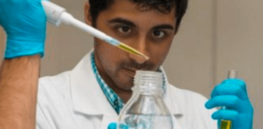
Milk without cows, eggs without chickens? Synthetic biology could lead to more sustainable food
[Editor's note: The following is a Q&A with Swedish bio-hacker Hannes Sjoblad.] Bio-hacking applies technology in innovative ways to modify biological systems ...
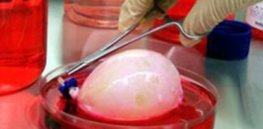
Organs from stem cells: Are we getting close?
The concept behind tissue engineering is simple: grow the patient's stem cells in the laboratory, add them to a scaffold ...
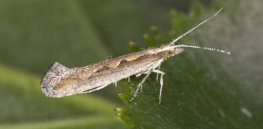
USDA approves first release of GE diamondback moths, in New York cabbage fields
A proposal to release genetically engineered diamondback moths in cabbage fields in upstate New York has received a green light ...
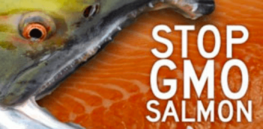
Transgenic fish are ready for us. Are we ready for them?
After overcoming two decades of regulatory and legal challenges, AquaBounty now faces the ultimate tests as it prepares for the ...

NYU ethicists: ‘Biologically’ modified mosquitoes should be deployed to fight Zika
[Arthur Caplan and Kelly Folkers are ethicists at New York University.] Zika is here to stay as a highly dangerous warm-weather pest ...
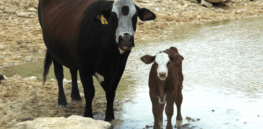
‘Cow of the future’: Genetically engineered ‘heat resistant’ cattle could adapt to climate change
Scientists are developing a breed of genetically-modified 'cows of the future' that will be more heat resistant and have superior ...

Redefining natural selection: How synthetic biology may solve sustainability challenges in food, fuel and health
[S]ynthetic biology] is poised to change how we feed ourselves, clothe ourselves, fuel ourselves—and possibly even change our very selves ...
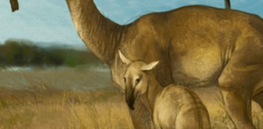
Darwin’s mystery animal: Camel-like creature linked to ancient horses finally added to tree of life
After the last of its kind died out about 12,000 years ago, a strange animal that stumped Charles Darwin is ...
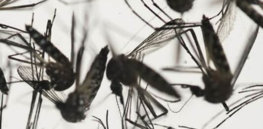
Mosquito suppression on ‘continental scale’ could be possible with CRISPR
Scientists at UC Berkeley and UC Riverside have demonstrated a way to edit the genome of disease-carrying mosquitoes that brings ...
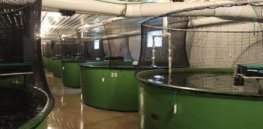
Prince Edward Island approves expansion of first North American GE salmon facility
A [Prince Edward Island] hatchery that will produce genetically modified salmon has received the go-ahead for two 40,000 square-foot buildings to expand ...
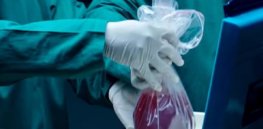
Cryopreservation: Wood frogs may provide a guide to preserving donor organs
Long-term preservation of donor organs and tissue for on-demand transplants and medical procedures sounds futuristic...But, hey, the Arctic wood frog ...

Opinion | Putin’s ‘sock puppets’: How Russia ‘uses’ anti-GMO activists to undermine crop biotech and science
In its promotion of 'fake news,' Russia is committed to undermining US technological advantages by using anti-GMO activists to spread ...
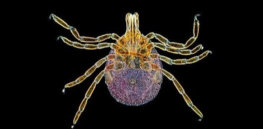
Carnivores beware: Meat allergies skyrocketing thanks to lone star tick
In the last decade and a half, thousands of previously protein-loving Americans have developed a dangerous allergy to meat. And ...

No longer ‘dead’: Our bones communicate through hormones with brain, other organs
In addition to providing structural support, the skeleton is a versatile conversationalist. Bones make hormones that chat with other organs ...

Epileptic mystery: Could micro-genes explain why some people have seizures and others don’t?
Seizures in epilepsy can be caused by genetic factors or they can be triggered by injury. While we know that ...

Reversing Huntington’s? Brain shown to heal itself after disease source edited out — in mice
The potential of genome-editing techniques, such as CRISPR/Cas9, to alleviate disease burden has ignited the imagination for thousands of researchers ...

Video: Nina Fedoroff’s TED talk on how CRISPR could control the Zika virus without pesticides
How did the Zika epidemic become so widespread across the Americas? How do we stop mosquitoes from spreading the virus ...
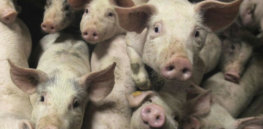
Pigs as human organ incubators? Pork producers gear up for potential demand
The pork industry is watching the potentially lucrative market that could be driven by a surge in demand for pigs ...
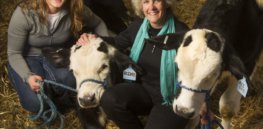
Proposed US rules on gene-edited crops, animals could hamper technology’s potential
US regulatory agencies have proposed guidelines and draft regulations that suggest they may subject gene-edited crops and livestock to the ...

